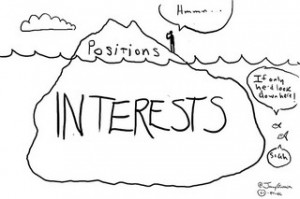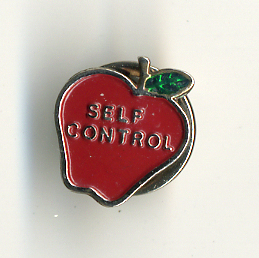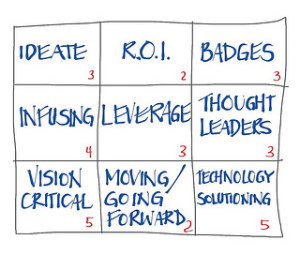 Let me say up front that I negotiate for a living. That is one of the main functions that I perform on a daily basis. So you would think I would be good at it. Some days you would be right. Some days you would be wrong.
Let me say up front that I negotiate for a living. That is one of the main functions that I perform on a daily basis. So you would think I would be good at it. Some days you would be right. Some days you would be wrong.
As I write this I am currently enjoying the pitter-patter of some additional little feet in my house. And it is a blessing that is beyond belief. I am so thankful to get to be an influence in these children’s lives in the absence of a real father figure in their lives.
And I think I am a little more observant at this point in my life than I was when I was younger and raising my own two children. I don’t recall someone flipping a switch and one of my grandchildren suddenly embracing the “terrible twos.” It’s almost like she was reading a magazine article written by another toddler that inspired her to begin consistently using the word “No”, or reverting to guttural grunts instead of using her incredible vocabulary. But a switch has been flipped.
 Now I’m not a pediatric psychologist or anything, but I’m sure this is all part a child’s natural development – she’s developing her own independent personality and part of that is testing boundaries and also understanding the dynamic between a stimulus and a reaction. Having said this, as parents (and even as a grandparent living in the same house), it doesn’t mean we have to like it.
Now I’m not a pediatric psychologist or anything, but I’m sure this is all part a child’s natural development – she’s developing her own independent personality and part of that is testing boundaries and also understanding the dynamic between a stimulus and a reaction. Having said this, as parents (and even as a grandparent living in the same house), it doesn’t mean we have to like it.
Also at play here is a paradox that all father’s struggle with – trying to balance protecting a child from getting hurt versus consciously allowing them to fall or get hurt so they can learn more about those boundaries that we have established for them and that they are constantly testing. During the first two years of childhood this balance is not overly difficult to manage – for most of the first year you allow your baby to develop their neck muscles, try to crawl, hold a bottle, and finally walk on their own. Sure, there’s some steps you can take to prevent unneeded injury, like adding table bumpers, but overall the baby needs to learn how to execute these essential tasks.
Fast forward to age 2 where there is much more advanced control of motor skills. But these little ones are still constantly teetering on the edge of serious injury. With this new physical competence there is also an ever-maturing personality and one that is determined to get exactly what they want all the time. As a parent, we of course know what is best for our children, particularly in the area of what actions will end up with a gaping wound, broken limb and a trip to the emergency room.
 But we struggle knowing when to let them figure things out for themself and allowing them to fall, experience pain, cry a little, but hopefully learn a valuable lesson as a result. With that said it is also important for our children to learn what is right and wrong based on our guidance, feedback, and instructions.
But we struggle knowing when to let them figure things out for themself and allowing them to fall, experience pain, cry a little, but hopefully learn a valuable lesson as a result. With that said it is also important for our children to learn what is right and wrong based on our guidance, feedback, and instructions.
This will ultimately end up being an important life-lesson. As good parents we would never dream of letting her try cocaine one day just so she can experience the side effects and learn on her own how harmful cocaine can be.
So what is the point on Fatherhood Friday?
Dealing with an energetic and bright toddler requires parents to enhance their negotiating skills. Why?
Click here to read the rest of the article »
Caring is sharing. Will you please share this with your network?
 In leadership we are seeking to help the people we are leading discover their purpose and potential. Each leader also may have certain goals, objectives and processes that they are supposed to meet and follow-through on, however the ultimate objective of leadership is the development of our followers.
In leadership we are seeking to help the people we are leading discover their purpose and potential. Each leader also may have certain goals, objectives and processes that they are supposed to meet and follow-through on, however the ultimate objective of leadership is the development of our followers. We need to lead in such a way that our followers know
We need to lead in such a way that our followers know 
















